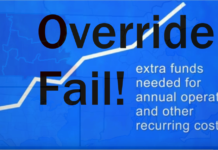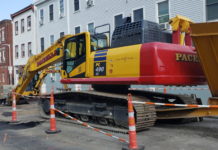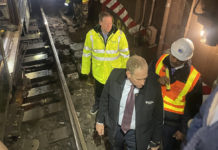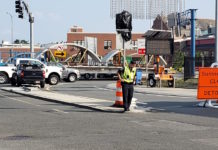Last year East Boston and Revere folks formed a committee and forged a proposal to build a “haul road,’ as they called it, that would, as they advocated, “take trucks off East Boston streets.”
This new road would use the old railroad right of way that runs from the jug-handle highway just south of Bell Circle to a connection with the Martin Coughlin by-pass road that runs from Logan Airport to the Chelsea Creek Curtis Street bridge.
As it happens, the haul road proposal revives a potential which seemed on the verge back in 2019, when the MBTA invited bids for an easement over the old railroad right of way. Yet no sooner did the MBTA issue its invitation than an assemblage of transit zealots and climate obsessives put up an outcry, demanding the Commonwealth withdraw its invitation. Taken somewhat by surprise, and perhaps unprepared to argue its case, the state withdrew the bid invitation.
The argument which cinched the bid withdrawal was that the railroad right of way was far too valuable as a climate resilience potential; that the road bed, which runs along Chelsea Creek, should be greened in some fashion.
Its an appealing argument. Waterfront land has an esthetic attraction, as a place of enjoyment, recreation, and natural preservation; and as a former Mass DCR coordinator, I am a fan of conservation and of pleasurable waterfronts. Yet in this case I stand with the haul road committee. East Boston and Revere are urban land. They abound with commerce, with travel and noise, as cities do and must if they are to justify their inconveniences.
Thus, we come back to the haul road. Here’s the deal:
The proposal uses land which today isn’t used at all, to route truck traffic – of which there is plenty, especially in our booming economy — off the McLellan Highway and, more urgently, away from East Boston’s local streets. It also avoids the public transportation obsession that consumes the region’s climate-addicted planners. It thus would seem a win-win for all.
Which is what it is. No one I’ve heard, other than some planners and the above-named obsessives, opposes the haul road. True, it doesn’t extend down to the tunnels, nor does it – yet – extend north beyond Bell Circle (though which right of way it would use there isn’t obvious). But for the two or so miles currently proposed, it would work its intention with very little downside.
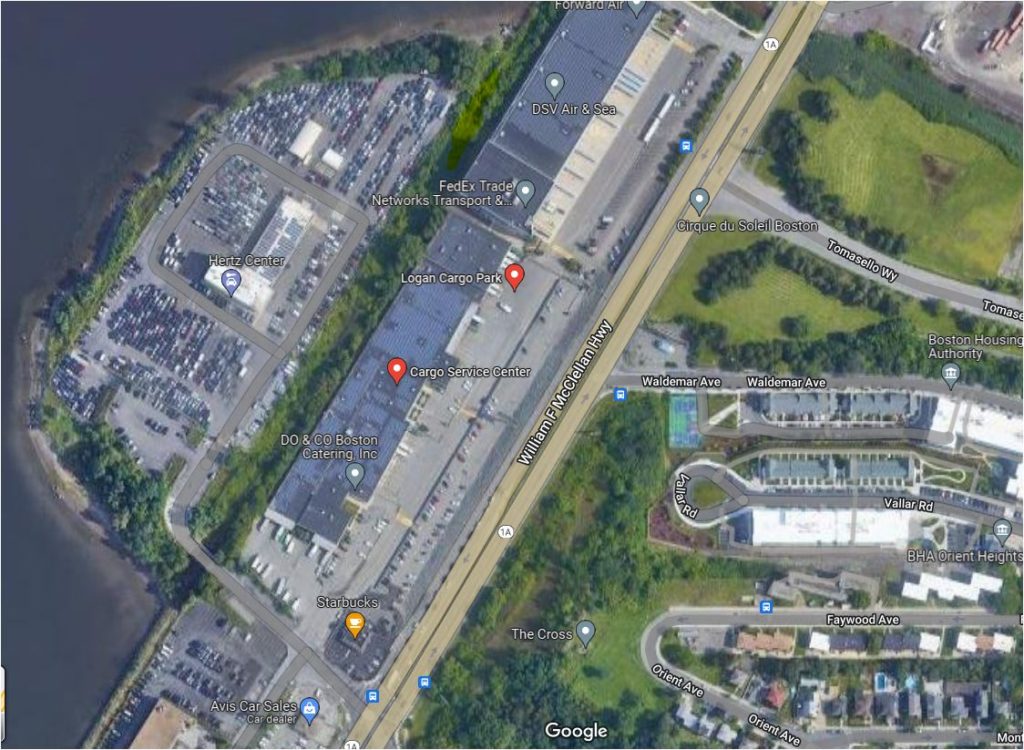
Among other benefits, it would significantly upgrade the East Boston shoreside of Chelsea Creek. Much of that shore is now a wasteland of uncared-for weed growth and industrial dumping.
As the Committee’s press release notes,
“The unused land along East Boston’s waterfront near Route 1A has been ignored for more than forty years with only the slow collection of trash occurring on what is valuable waterfront land in our community. A better use of the property is for a Haul Road and Waterfront Access that will directly benefit East Boston.
Since several islands were connected to create what we now know as East Boston, the rail line defined the boundary with Chelsea Creek. Yet, with the abandonment of that rail line in the 1970’s, nothing has happened to re-use this property. The Commonwealth, MassDOT, Massport and the City of Boston have never done anything to put this property to use.”
The Haul Road committee includes Joseph Steffano, also a political activist, Mariellen Dalton, a very respected community leader, Michael McCormack, who is active with the Harborview Neighborhood Association, and Deysi Gutierrez, of Empower Boston, a community activist group opposed to unrestrained development in East Boston.
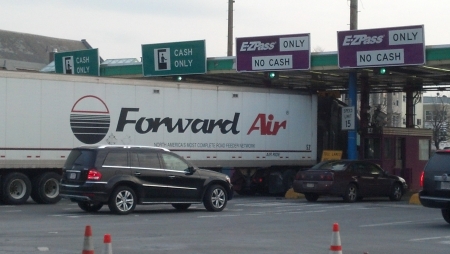
It’s a committee of very diverse political views, an indication of just how broad supports is in the community for the Haul Road..
So then, what is the issue here? There are two. First, the planning and approval process, overseen by the Massachusetts Department of Transportation (“DOT”), has no end date. If the languishing saga of the South Coast Rail project is any example, the “DOT” stamp of approval isn’t, being stamped any time soon. And who knows what the truck traffic situation will be when and if that approval is given three, five, seven years down the line? Who knows what the public’s perception of trucks on highways will be by then?
Second, it is, in my estimation, imperative that the Commonwealth get back to building commercially beneficial roads again. The era of public transit priority, which began in 1967-68 when the then planned I-95 extension into Boston was cancelled after major public protest, must come to an end.
Public transit costs huge sums to build and huger sums to maintain. It is control transportation that goes where it wants to go when it wants to go there. It imposes itself on the public. Roads, on the other hand, put down a red carpet, so to speak, individual users to use when they choose to use it and to where they choose to go. Roads are freedom transportation.
And even if one does not buy this argument, roads are used by the overwhelming majority. State policy in a democracy should prioritize the overwhelming majority.
As for the climate alarmist, I find them overwrought. East Boston and Revere already enjoy an abundance of conservation and recreation shores. What we lack is working class, commercial places and connections. You want ordinary workers to be able to afford living here? Then accord our $50,000 to $70,000 a-year workers the jobs to match. (One thing I like about President Biden’s agenda is his focus on manufacturing jobs, union jobs.)
The haul road is a superb federal funds example of his bipartisan infrastructure legislation.
To sum up: policies which impose huge costs upon people and demand grave sacrifices of liberty should not (and in my opinion must never) erupt into the life of a democratic community in a nation founded on freedom.
Now back to the time issue. It is not simple.
I estimate an extended time frame because the “DOT” process for approving a major, urban road project has many steps. In this case, the process has only just started. A public meeting comes first; then a “DOT” environmental and traffic study, or studies. Then, likely, additional public meetings appraising the plan that DOT actually proposes to approve. Then comes the actual approval procedure. You can bet that along the way, the no-new-highways, transit uber alles advocates will do their best to stall, divert, and disrupt any resolution they do not like. I cannot imagine all of this being resolved before 2025 to 2026, if then. It’s going be a fight, albeit one that makes excellent good sense, commercially, from a traffic standpoint, and for the future of transportation thinking.
The Haul Road committee must commit for the entirety of this long game.
It has the right tiger by the right tail.
— Mike Freedberg
Mike Freedberg is editor and publisher of the blog, Here and Sphere. He is also a political consultant. He regularly contributes original, participatory content to EastBoston.com.
Originally published February 10, 2023.



